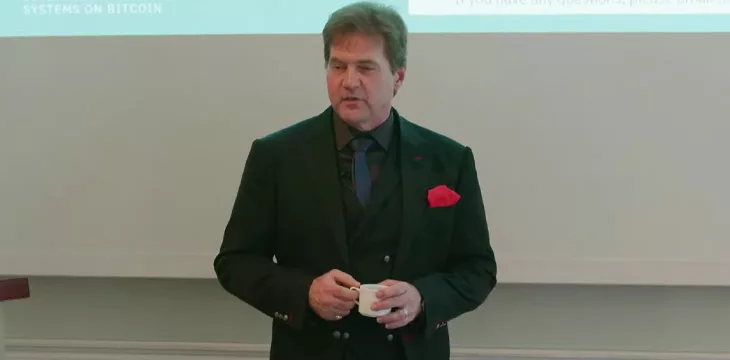|
Getting your Trinity Audio player ready...
|
Auto-fill is handy, right? Especially since almost every online form we complete these days contains multiple compulsory fields asking for as much data as possible. Imagine if all this information could be tokenized somehow, with all details legally verifiable, that we could click to add to any online form, no matter how important or official.
“Integrating Alternate Structures with Bitcoin,” i.e., systems developed from third parties, is the topic of the fourth session of the latest The Bitcoin Masterclasses #7 with Dr. Craig S. Wright.
The fourth session on Day 1 of Bitcoin Masterclass #7 begins here. All other sessions from this season and previous seasons are available for viewing on the CoinGeek YouTube channel.
We’re talking more about official forms here, such as those belonging to tax offices, passport issuers, vehicle registries, and land title agencies. Most, probably all, this information is already digitized. But it’s all kept in separate places with different systems; it’s impossible to change a detail (such as a home address) in one place and propagate everywhere.
“The amount of money wasted in society on data entry is phenomenal. We’re talking about more than the cost of picking up litter.” The economic benefits of getting rid of that problem are huge and are something people and governments should be willing to pay for.
As Dr. Wright points out, having a single tokenized record doesn’t solve the “GIGO problem” (garbage in, garbage out). All output will be affected if the information in the records is incorrect or contains errors. This can be more of a problem for the data collectors than owners, but keeping accurate data records for your own life (including data certified by the appropriate authorities) is useful for all parties. Having a single tokenized record would help reduce errors as well and save you some time… as long as you ensure it’s all correct.
“Self-sovereignty doesn’t mean everyone gets to be their own identity source. I don’t get to identify as a galactic alien overlord and my pronouns are Your Majesty/Your Highness. What you do get to do is, if you create something, you get to set the terms.”
The blockchain solution helps to reduce fraud as well. But garbage data isn’t just about deliberate “errors” like these two examples—there are also many “edge cases” where someone’s circumstances or records are unique or non-standard. Database designers often overlook these or don’t know what to do with them, finding themselves in possession of data they don’t know where to put.
Developing (and following) data standards is important and an issue that exists whether we have blockchain records or not. Dr. Wright advocates using XBRL (eXtensible Business Reporting Language) as one way to keep interoperable records.
“We make it a lot easier for people to not make mistakes.”
The final part of this session, like others, contains a brainstorming session for the audience to consider use cases on the topic covered. The takeaway for video stream viewers here is also to think about the amount of time you spend in your life filling out forms and keeping all your information accurate and how much easier life would be if you didn’t have to do that.
This much easier life is possible with a scalable blockchain. In a world where everything seems more interconnected by the day, there are still too many areas where things that should be connected aren’t at all.
Watch The Bitcoin Masterclasses #7 Day 1: Sovereign Nodes

 02-27-2026
02-27-2026 




